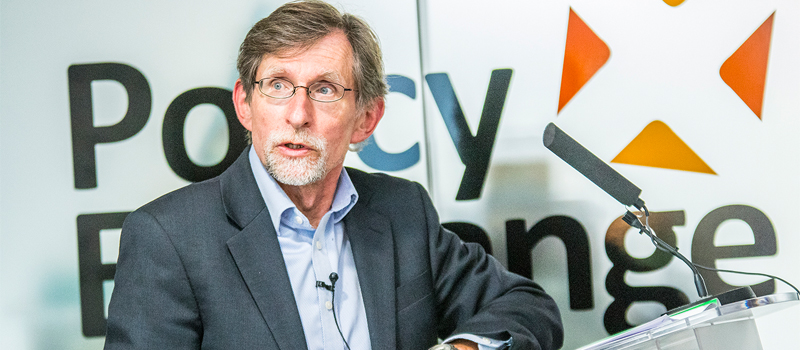15 September 2017

Governments should avoid the temptation to “cherry pick and policy borrow” from successful education systems, the architect of the overhaul of the National Curriculum in England has said.
Tim Oates CBE was speaking at the launch of A Cambridge Approach to Improving Education, hosted by the leading UK think tank Policy Exchange. The Cambridge Approach, the result of a wide-ranging study of educational improvement across a range of jurisdictions, is designed to guide thinking on policy formation and ensure governments take a more comprehensive view of the forces and factors at work in education systems.
“Policy borrowing and cherry picking is naïve; there is a long list of things in education that have failed because they did not take account of national context and national culture” said Tim, who is Director of Assessment Research and Development at Cambridge Assessment.
“The thing I would say to anyone who feels that there is an ineluctable historical process which leads inevitably to high performance once you have started improving your educational systems is just look at Finland,” said Tim.
The country, which was for a number of years held up as a model for educational improvement, has recently seen its performance in the influential Programme for International Student Assessment (PISA) tests decline.
Tim also warned governments against looking for a single solution to a country’s educational challenges, saying it was not so simple: “Performance is more than the shape of single aspects of systems – we have to avoid this myopia of single models”, he said.
The Cambridge Approach identifies 14 ‘control factors’ and a further six ‘explanatory factors’ that can be used to “hold a mirror up” to education systems, from pedagogy to accountability and curriculum content, and from culture to political structures.
In his talk, he went on to identify a phenomenon in which countries were “like ships passing in the night”, adopting strategies that had already proved a failure in other countries.
“Just as one country abandons something, another country thinks it’s going to be the saving grace of its education system,” said Tim. He also said that there was no such thing as a perfect system, and that you “constantly have to watch, you constantly have to nurture, you constantly have to analyse” - levers had to be regularly tweaked and adjusted to ensure optimum performance.
John Jerrim, Reader in Educational and Social Statistics at the UCL Institute of Education, who led the questioning, said he agreed with the warning about policy borrowing.
“How are you ever going to pin down what Singapore or Finland does to make its education such a success and therefore borrow from it? You can’t pin down the data in that way. I think that’s a really important lesson to remember next time you sit in a presentation by Andreas [Schleicher, creator of the PISA test] and he says ‘look, all the high performers do this’ - just think to yourself that there is a whole lot more going on”.
Dr Jerrim’s views were echoed by Policy Exchange’s Head of Education and Social Reform, John Blake, who chaired the event. He said: “What’s interesting in the Cambridge Approach is that the answer is ultimately no, we shouldn’t be cherry picking, we shouldn’t be simply going around the world picking up on different things and desperately applying them. We need to take seriously the historical contexts and the value systems of other comparable jurisdictions and think very carefully about our own before we implement it.”
An informed and appreciative audience attended the event and there was a wide-ranging question and answer session afterwards, covering areas including whether smaller jurisdictions do better in international comparisons, how to explain the recent success of London, and how governments should respond to the challenges created by the digital revolution.
You can watch a recording of the event on the Policy Exchange website and the document is available to download for free below.
Related materials